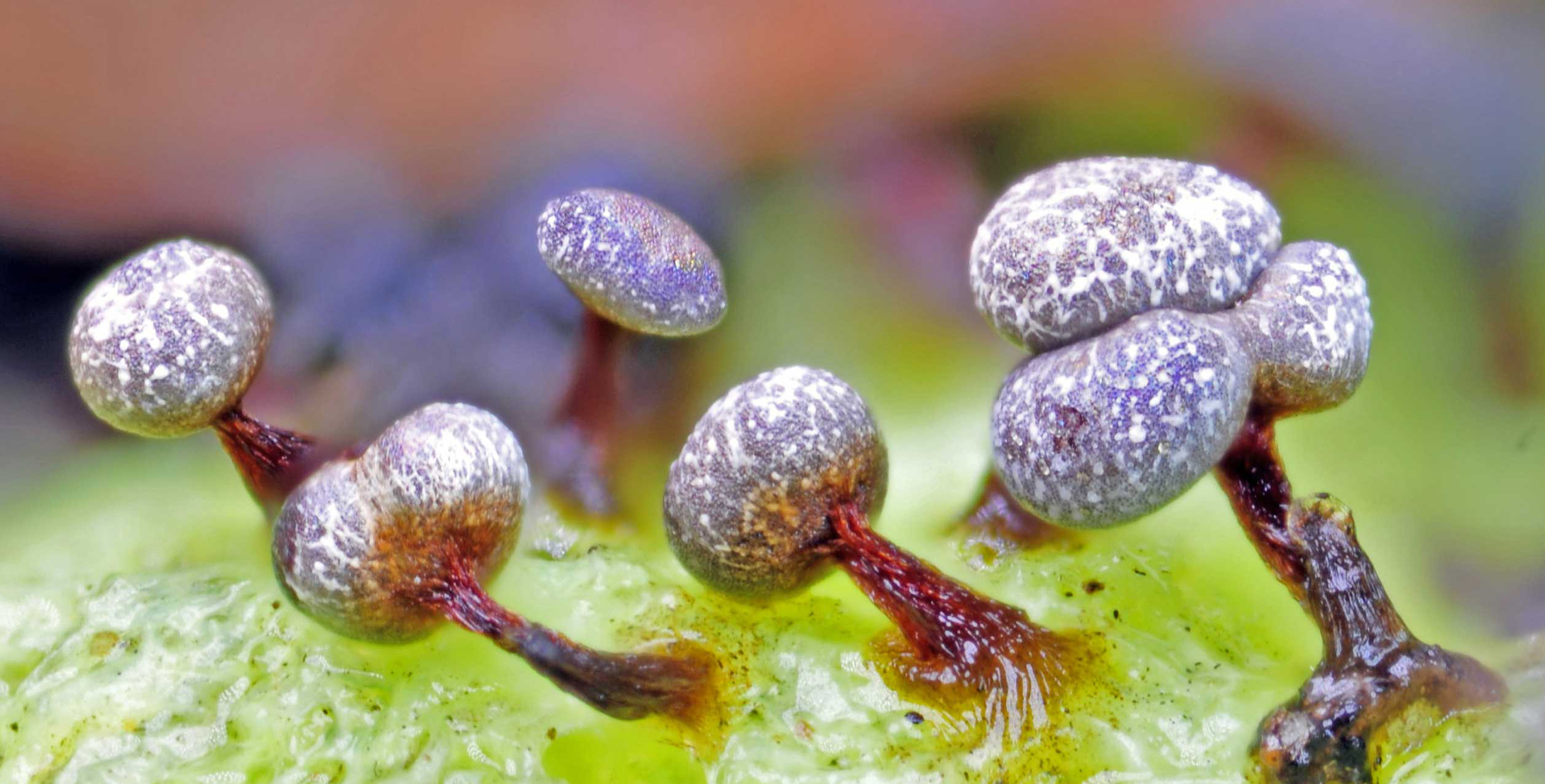The Myxomycetes, or slime moulds, also known as Mycetozoa or Myxogastria, are a group of ameboid protists, considered for many years as a special group of fungi. They are microscopic, phagotrophic, non-pathogenic bacterivores, which help to decompose plant remains. Their life cycle has amoeboid, motile, trophic stages, either unicellular (myxamoebae or swarm cells) or multinucleate (plasmodia), and a reproductive stage with spores generated by a complex non-motile fruiting body. They are found in all terrestrial ecosystems, and about 1000 species are known worldwide. They are particularly abundant in temperate and tropical forest, but many species are also adapted to live in extreme environments where, along with yeast and bacteria, they form an unusual biota. The myxomycetes, also called plasmodial slime molds, the dictyostelids, cellular slime molds or «social amoebae», and the protostelids form part of a group now called Amoebozoa. This is of some evolutionary significance, on account of its position in the tree of life, since it is considered to be one of many attempts in the evolution of organisms towards multicellularity.


